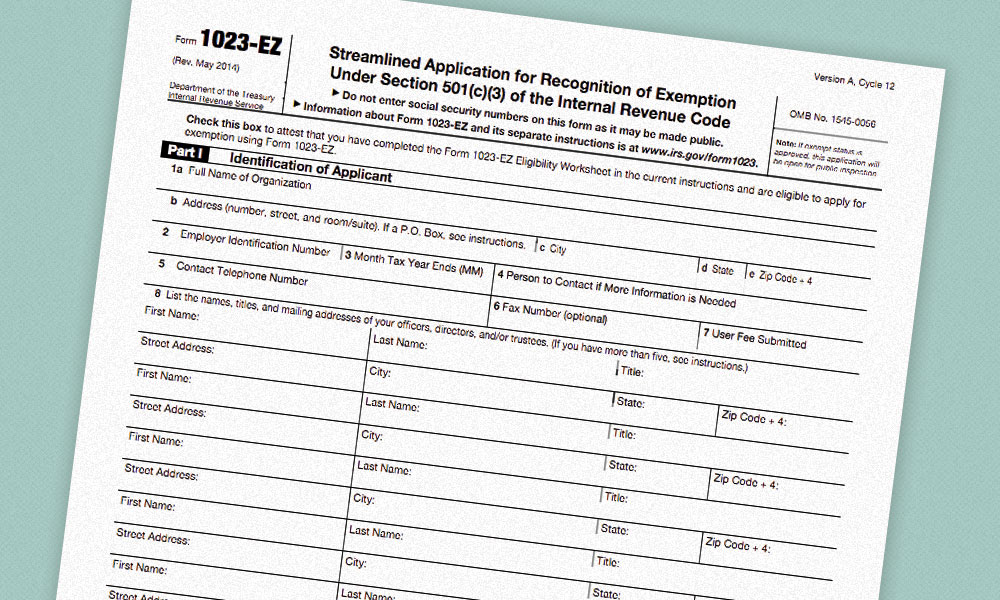
Shorter IRS Nonprofit Application Form Debuts Despite Critics’ Concerns
The Internal Revenue Service last week rolled out a new, shorter application form to assist smaller charities seeking 501(c)(3) tax-exempt status. The three-page form cuts red tape but brings other problems, critics warn.
Applying for 501(c)(3) tax-exempt status just got a whole lot easier for small charities—perhaps too easy, some in the nonprofit community say.
On July 1, the Internal Revenue Service introduced Form 1023-EZ, available for most organizations with gross receipts of $50,000 or less and assets of $250,000 or less. The IRS says it cuts the paperwork required to apply for nonprofit status nearly tenfold, from 26 pages down to just three.
“This is a common-sense approach that will help reduce lengthy processing delays for small tax-exempt groups and ultimately larger organizations as well,” IRS Commissioner John Koskinen said in a statement. “The change cuts paperwork for these charitable groups and speeds application processing so they can focus on their important work. … This process created needlessly long delays for groups, which didn’t help the groups, the taxpaying public, or the IRS.”
By streamlining the process for smaller organizations, the IRS believes it will be able to free up resources to review applications for larger groups and reduce the current backlog of 60,000 501(c)(3) applications.
The new EZ form must be filed online, and groups are required to complete an eligibility checklist before using it.
Despite IRS promises of less red tape, many in the nonprofit community are concerned that the new form will cause its own headaches.
The National Association of State Charity Officials said the form could burden state and federal charity regulators that are already stretched thin.
“While we appreciate that the IRS will be committing more resources to back-end compliance examinations to address the potential for malfeasance, our concern is that the current 17 percent of all applicants for which the Form 1023-EZ would apply could grow exponentially if the process for obtaining tax-exempt status was significantly simplified,” NASCO President Alissa Hecht Gardenswartz said in a statement in May recommending against adoption of the short form.
Critics told The Chronicle of Philanthropythat the longer Form 1023 educates applicants on all of the planning involved with setting up a nonprofit and helps discourage potential cheats from applying for nonprofit status.
In a blog post last April, nonprofit attorney Ellis Carter was mixed on the new form.
“I applaud the IRS’s creativity in looking for more efficient ways to process applications for exemption,” she wrote. However, “the current Form 1023 forces applicants to articulate their plans in a manner that mimics creating a business plan. In contrast, the streamlined 1023-EZ is likely to exacerbate the proliferation of nonprofits and result in a marked increase in the number of applicants who are not prepared to run a nonprofit.”
(Associations Now illustration)






Comments